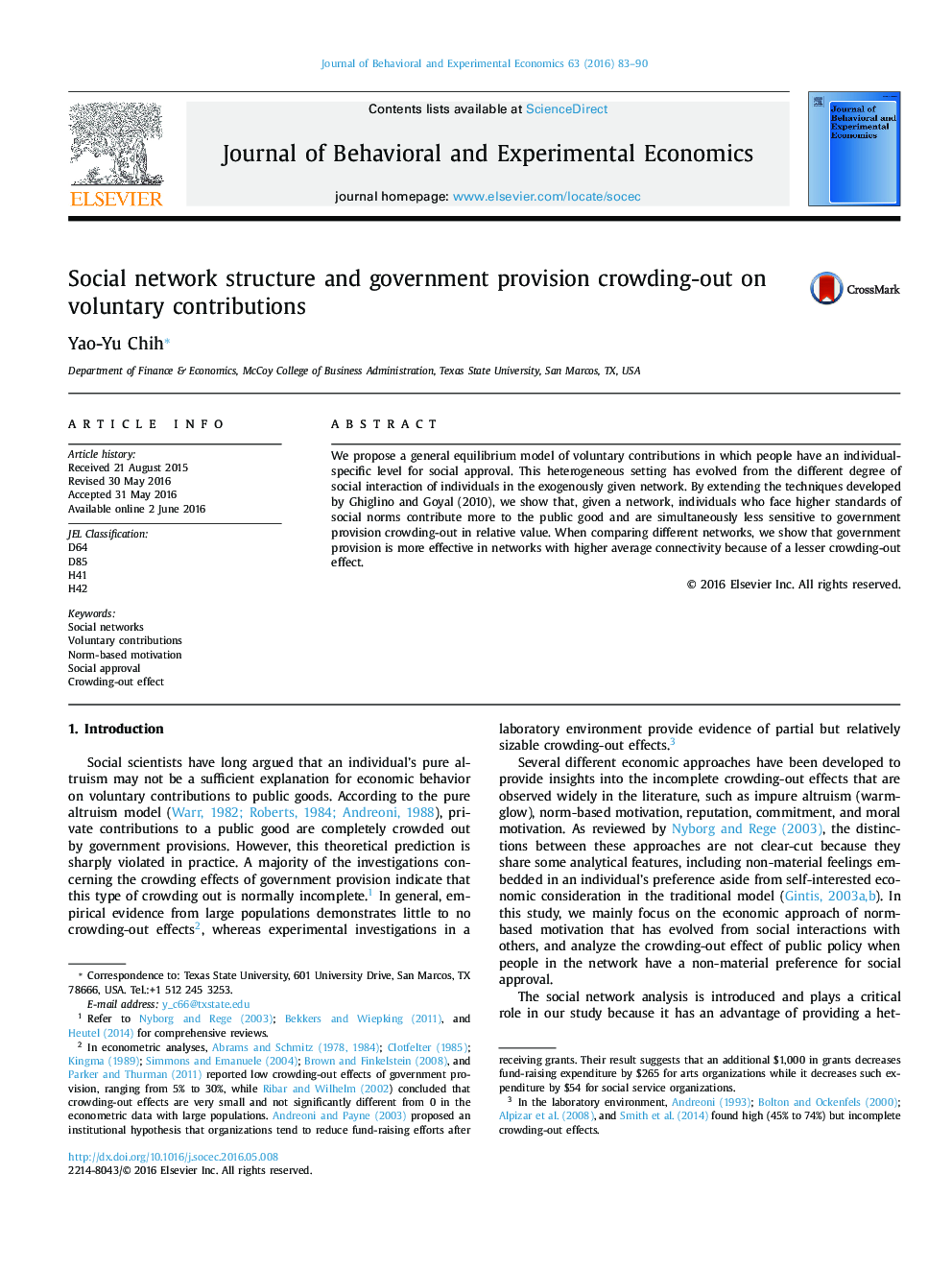| Article ID | Journal | Published Year | Pages | File Type |
|---|---|---|---|---|
| 881788 | Journal of Behavioral and Experimental Economics | 2016 | 8 Pages |
•We model donation behavior with diverse agent motivation for social approval.•Like status competition, increased interaction increases voluntary contributions.•Government provision crowds out less donations for agents with more interactions.•Government provision is more effective in networks with higher connectivity.
We propose a general equilibrium model of voluntary contributions in which people have an individual-specific level for social approval. This heterogeneous setting has evolved from the different degree of social interaction of individuals in the exogenously given network. By extending the techniques developed by Ghiglino and Goyal (2010), we show that, given a network, individuals who face higher standards of social norms contribute more to the public good and are simultaneously less sensitive to government provision crowding-out in relative value. When comparing different networks, we show that government provision is more effective in networks with higher average connectivity because of a lesser crowding-out effect.
